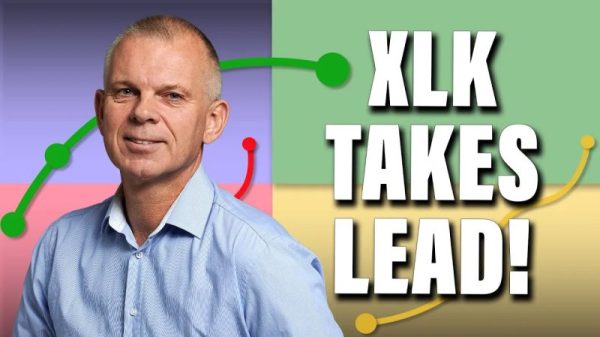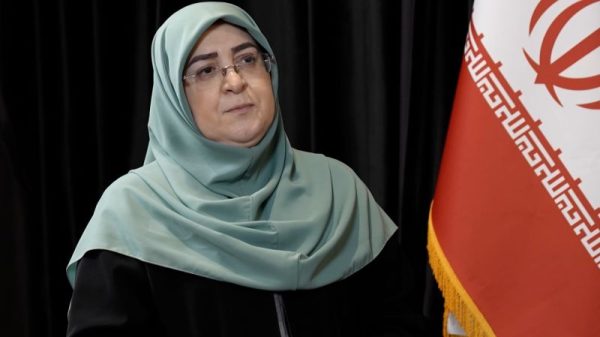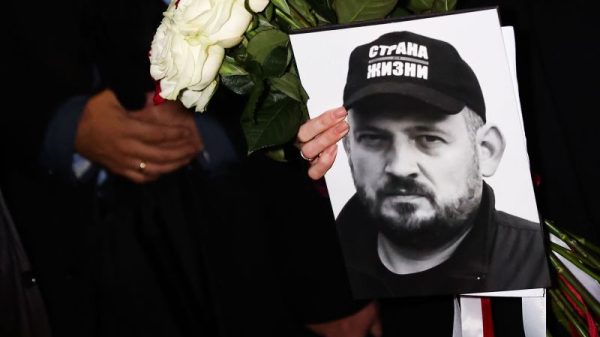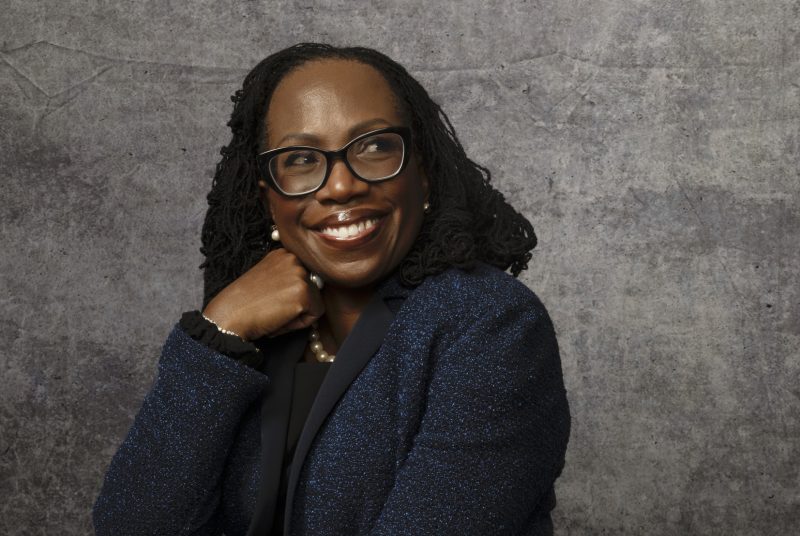As the hardworking child of academically focused parents, Justice Ketanji Brown Jackson dreamed of reaching the highest levels of the legal profession. She even wrote in her college application to Harvard about becoming the first Black woman on the Supreme Court.
But when the Biden administration called in 2022 with news that she was being vetted for that exact role, Jackson hesitated. She worried about the harsh spotlight on her family and the potential impact on her older daughter, Talia, who is on the autism spectrum.
Jackson and her equally driven type-A husband had initially struggled to grasp their child’s neurological differences, and Jackson wanted to be sure her daughter was comfortable with the possibility of the diagnosis becoming public.
“They had not asked for their lives to be raked over, simply because their mother dreamed of entering a realm where no one with her background and experiences had ever been before,” Jackson, 53, writes in her new memoir, “Lovely One.” Both Jackson’s daughters and her husband encouraged her to pursue her dream.
The story of Talia Jackson’s diagnosis was not widely known until now and is one of the biggest revelations in Jackson’s highly personal memoir, published this week. The book does not touch on the current cases or controversies before the Supreme Court, where Jackson is one of three liberals on a bench with a conservative supermajority that has dramatically shifted the law to the right in recent years.
Nor does Jackson write about the oral arguments in which she has become known for her extensive questioning, or her sharp separate dissents, including when the court majority in July granted Donald Trump broad immunity from prosecution for official acts. She spends just four of nearly 400 pages on the grueling Senate hearings ahead of her confirmation in April 2022, when she was narrowly confirmed despite Republican efforts to paint her as a left-wing lower-court judge who coddled criminals and terrorists.
Instead, Jackson reflects on her groundbreaking path and the impact of key experiences, including her mentors, her uncle’s incarceration and the pain of being overlooked as a Black woman in the corporate legal world despite her sterling résumé.
“No one arrives at the highest of heights on their own, and there were lots of contributing factors — people, circumstances — that prepared me for this job, and I thought that needed to be recognized,” Jackson said in an interview Wednesday night before a book talk.
Jackson received an $893,750 advance from Penguin Random House for the book, according to her financial disclosure report. She is one of at least four Supreme Court justices — the others are Neil M. Gorsuch, Brett M. Kavanaugh and Amy Coney Barrett — with forthcoming or just-published books about their lives and the law.
The justice has embarked on an extensive media tour, speaking with Stephen Colbert on “The Late Show” this week and giving more than a dozen book talks this month, including in California, Illinois, Seattle and Florida, ahead of the court’s new term that begins in October. At the Kennedy Center on Wednesday, an audience of nearly 2,000 people gave her a lengthy standing ovation, with many participants clutching copies of her book.
Jackson says she was compelled to tell her story because of intense public interest in her nomination. She shares the reality of her balancing act as a working parent and partner to her husband, Patrick Jackson, a prominent surgeon, recalling quick naps she took in a grocery store parking lot on her way home from work years ago when she was seven months pregnant with their second child. And she details what it took to rise through the ranks of the legal profession, especially “as a woman of color with an unusual name.”
Even though Jackson had graduated with top honors from Harvard Law School and worked for three federal judges, she says, there were instances during her stints at corporate law firms when she felt her views were ignored at meetings — even though she was the only one in the room who had clerked at the Supreme Court.
More than once, Jackson writes, she would be standing near the copy machine or waiting for an elevator only to have an older law partner walk up and, assuming she was a secretary, ask which of his colleagues she assisted.
Such encounters, she writes, “reinforced for me that due respect for my talent, intellect, and legal abilities would not be automatically extended in some private-sector settings.” She recalls wanting to yank her two Harvard degrees off the wall to carry around with her.
Jackson first learned about the inner workings of the Supreme Court while clerking for the man she would eventually replace on the bench. Justice Stephen G. Breyer, who retired in 2022, was constantly on the move, she writes, leaving his chambers to talk with and try to persuade other justices on various issues.
In the interview, Jackson said she finds herself thinking about how Breyer might have handled areas of disagreement among the current justices — who, unlike trial judges, must hash out their decisions together. He has told her that it takes time to acclimate to the ways of the court and encouraged her to build bonds by eating lunch with her colleagues.
“Collective decision-making is really a challenge. I think it’s been, not an easy transition from when I was my own person in the courtroom,” Jackson said, referring to her eight years as a judge in D.C. federal court. The steepest learning curve, she said, is “trying to deal with incorporating other people’s thoughts and ideas and getting their feedback. And how did how do you manage that in terms of what you would like to say and what they’re saying. That’s hard.”
Jackson is a prolific writer, tied with Justice Clarence Thomas for the most overall opinions in the last term and often writing a separate dissent or concurring opinion. She said that it’s not easy to figure out when to go it alone but that she thinks it is important to do so in some instances. “I want people to know what’s going on in the court and I want people to appreciate the issues,” she said. “And if we have differences of opinion, I think it’s fine to have people understand that and see what the different ideas are.”
The title of Jackson’s book is a reference to her given name — Ketanji Onyika. It translates to “lovely one,” and was chosen by her parents from a list sent to them by Jackson’s aunt, then a Peace Corps volunteer in West Africa.
The memoir traces the backgrounds of her grandparents, who had only grade school educations, and her parents, who went to racially segregated schools and were the first in their families to go to college. Jackson contrasts their stories with the history of her husband’s Boston Brahmin family, whose ancestors include King Edward I of England, four Mayflower passengers and a signer of the U.S. Constitution.
Jackson’s parents, Johnny and Ellery Brown, began their careers as teachers and had high expectations for their firstborn. They filled her bedroom with encyclopedias, atlases, and magazines with stories of famous African Americans. That was where Jackson first read in detail about Constance Baker Motley, the first Black woman to argue at the Supreme Court and serve on the federal bench. Motley shared a birthday with Jackson and, the justice writes, inspired her childhood dreams.
Coached by her grandmother and parents, Jackson learned not to dwell on encounters with racism in her predominantly White world in Miami, and to revel in her success as a class president and a champion public speaker on the high school debate circuit.
“I came to enjoy catching people off guard, disarming their conscious or unconscious stereotypes about Black people with my intelligence, articulation, preparation and ability to function well in a world that I knew expected me to fail,” she writes.
In tracing her career through the legal profession, Jackson writes for the first time about the life sentence her uncle received for a nonviolent drug offense. Jackson was a federal public defender in D.C. when Thomas Brown Jr., her father’s brother, called from a Florida prison asking his niece for help in seeking leniency — an episode first reported by The Washington Post when she was under consideration to become a justice.
“My heart raced and my hands shook as I sifted through the files, and my brow felt clammy as I studied each sheet of paper,” Jackson writes of reviewing Brown’s case files. “The tiny pilot flame of hope that I had nursed since I’d spoken with my uncle slowly bloomed into righteous anger — then died — as I realized that there was nothing in the files that either justified a life sentence or warranted a retrial or a resentencing in his case.”
After a referral from Jackson, a private law firm eventually took her uncle’s case pro bono, and President Barack Obama years later commuted his sentence. He was released in 2017. The case brought questions of sentencing policy and fundamental fairness into sharp relief for the young public defender.
“It’s one thing to read about cases and their outcomes,” she writes, “but I now had firsthand experience of the myriad ways in which criminal justice policy can destroy the lives and livelihoods of real human beings.”
The book also details her courtship and marriage to Patrick Jackson, whom she met in history class at Harvard, and the initial concerns expressed by their friends and families about their interracial relationship. Eventually, Jackson writes, the couple’s loved ones fully embraced them.
But perhaps the biggest challenge they faced was the struggle to understand their older daughter’s troubles in school.
“Unfortunately for Talia, her well-meaning, utterly devoted parents had some blind spots, likely stemming from a heightened work ethic that Patrick and I had internalized to an almost ridiculous degree,” Jackson writes.
“We took far too long to understand that Talia wasn’t neurologically wired like Patrick or me, and although she was indeed extraordinarily bright, we couldn’t simply parent her as we ourselves had been parented.”
Talia’s diagnosis with autism — in 2012, when she was 11 — was devastating, but also a relief, Jackson writes: “We could at last accept that her life was likely to be fundamentally different from the one we had envisioned for her when she was a newborn.”
The memoir includes some lighter moments as well, following Jackson as she shops in New York’s Garment District for her first judicial robes after her 2013 confirmation to the U.S. District Court in D.C., and recounting the day she discovered her signature hairstyle — tightly coiled sisterlocks.
Even in the glare of public life after her Supreme Court nomination, Jackson writes, her low-maintenance, chin-length locs “freed me to show up in the most formal legal settings wearing a neat, precise style that I love and one that also communicates my appreciation for my God-given hair texture.”







































